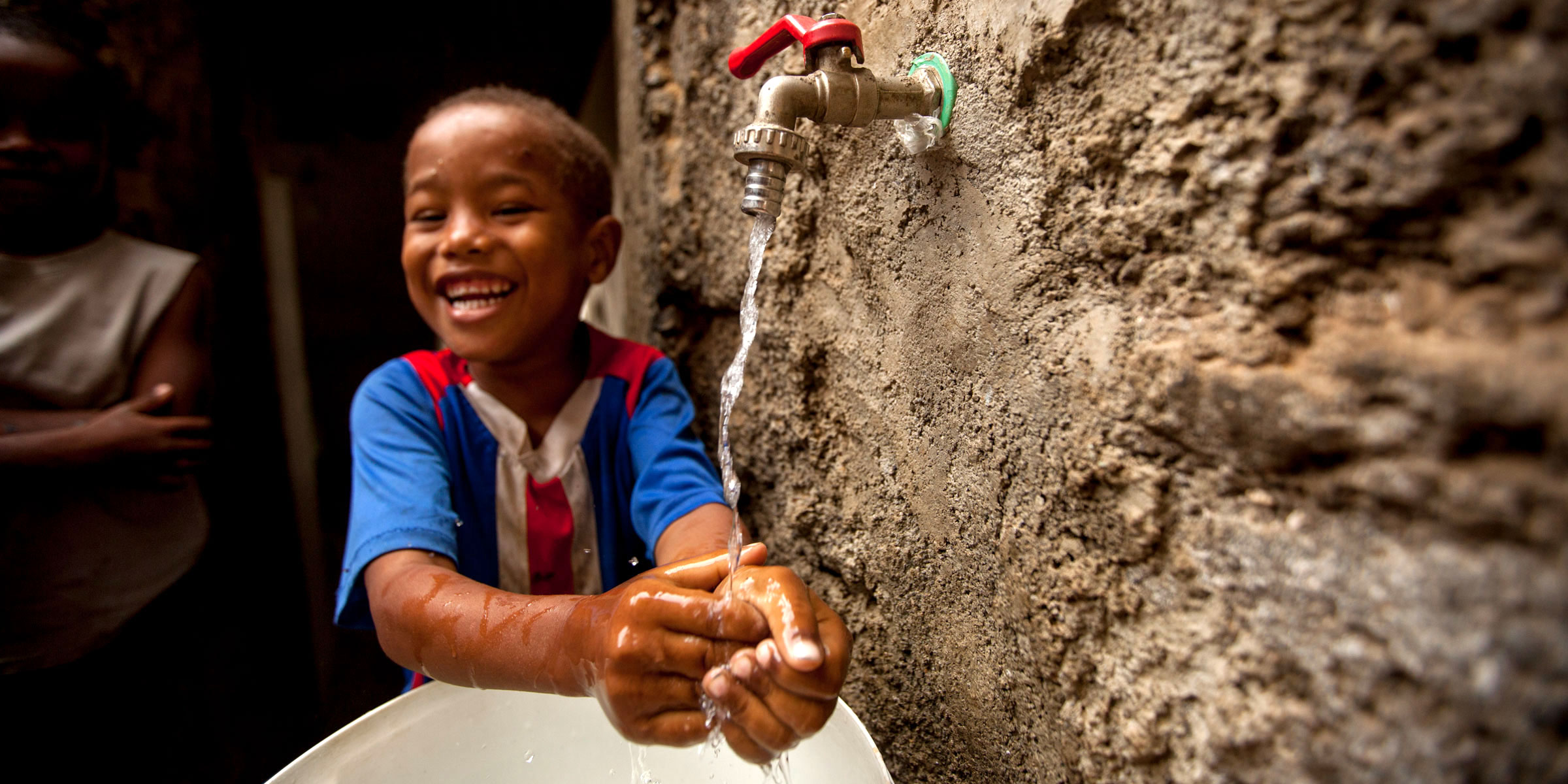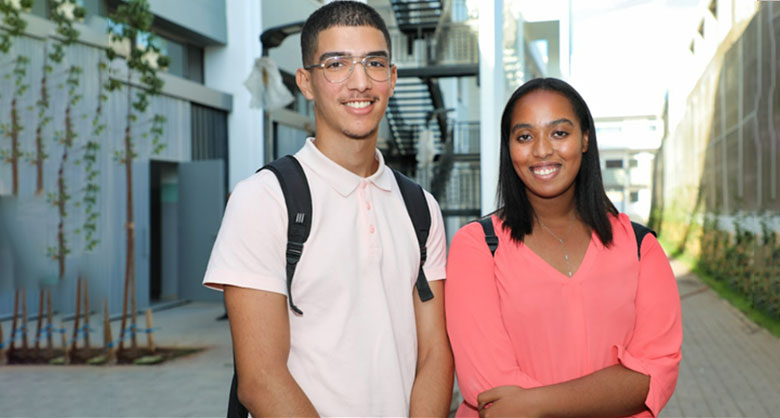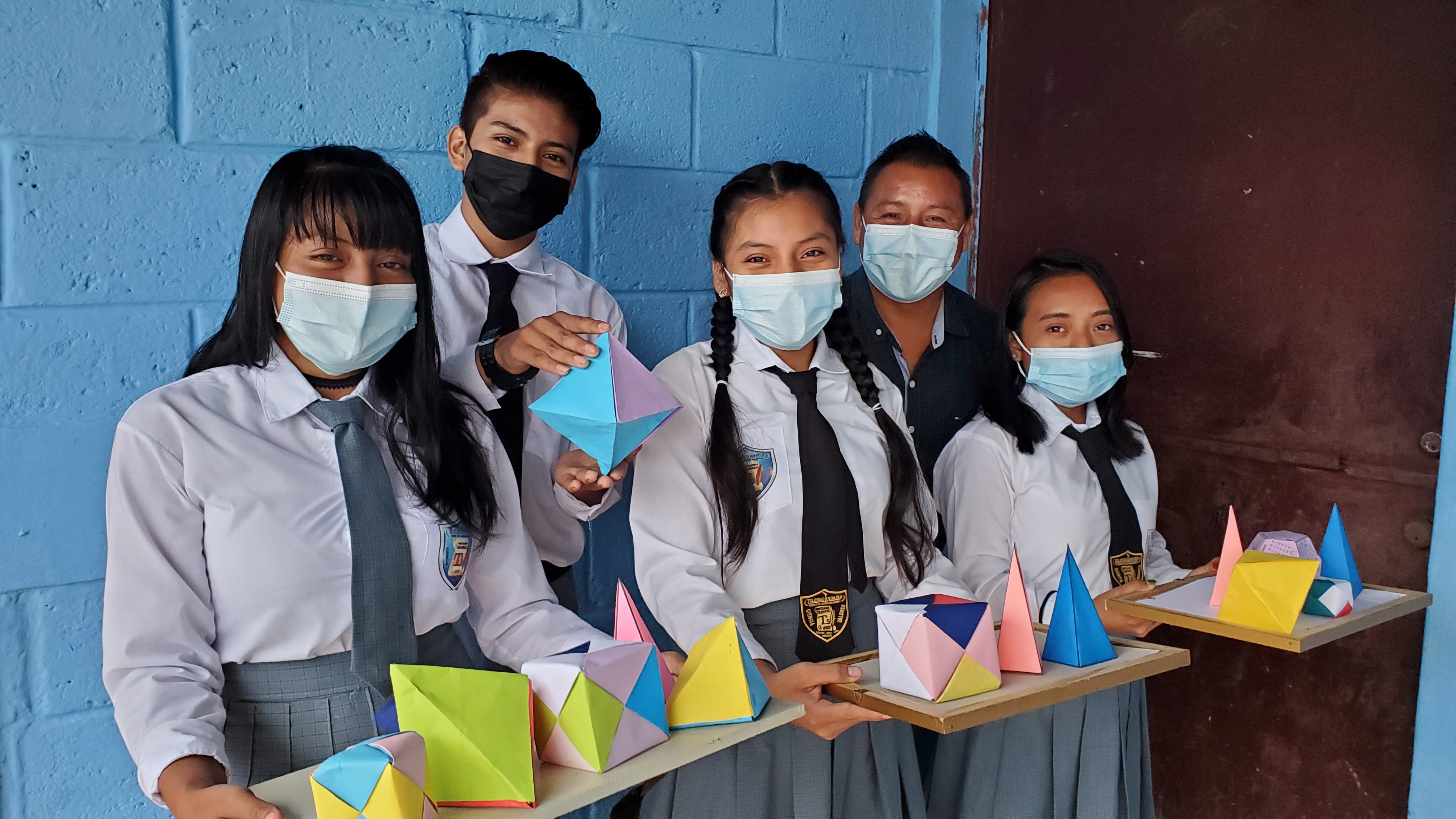
On January 23, 2004, MCC was born from a Bush Administration push for an innovative, cost-effective, and data-driven approach to global poverty reduction. In the years since, MCC has evolved from a small, upstart in the international development space to a respected agency, celebrated for its proven model and global success.
“I viewed MCC as a disrupter in the world of development where well-intentioned organizations and individuals were trying to do the right things but with insufficient resources and sometimes misguided approaches,” said Kyeh Kim, MCC’s first Africa Country Team Leader.
Working with a lean staff and high hopes, MCC created its innovative partner country selection methodology in its first year—a transparent, data-driven process that values accountability, economic freedoms, transparency, and democratic governance. MCC’s groundbreaking method fortifies democratic values that allow countries to deliver long-term results for their people. By 2005, MCC had signed compacts with Cabo Verde, Georgia, Honduras, Madagascar, and Nicaragua, and its first threshold programs with Malawi, and Burkina Faso. Two decades later, the agency has delivered nearly $17 billion in aid to 47 low-income and lower-middle-income countries across six continents and moved the needle on the world’s Sustainable Development Goals (SDGs) with programs that are helping to lift more than 300 million people out of poverty.
“It’s very important that we—as the strongest nation in the world—do what we can to help emerging democracies, and that’s what MCC has been able to do for the last 20 years— alleviate poverty around the world by building economies—and I’m proud to be part of it,” said MCC Board Member Ander Crenshaw and former Member of the Congress that helped passed legislation to create MCC.

Thanks to an MCC-funded project in Cabo Verde that provided low-cost household connections to water and sanitation networks, many people like Kleber (above) have clean water coming directly to into their homes.
MCC developed a formula of connecting the needs of the people, leadership of the government, and data in a way that respects the decision-making and development journeys of MCC partner countries. In Timor-Leste for example, the government prioritized SDG Goal 6: Water and Sanitation in their assessment of the SDG 2030 Agenda. The COVID-19 crisis heightened the country’s susceptibility to infectious diseases and the need to have a better infrastructure ready to react. MCC’s $420 million investment is working to improve Timor’s water, sanitation, and drainage infrastructure including the country’s first central wastewater system.
Perhaps nothing distinguishes MCC more as a development agency than its ability to deliver high-quality infrastructure and critical services on time and on budget. The impact of that is felt broadly by governments, and specifically by people.
“The MCC operationalized three big culture shifts that had been talked about forever but never successfully institutionalized,” said former MCC Vice President for Compact Operations Patrick Fine. “They were: 1) country ownership—through the establishment of MCAs as implementing bodies, the requirement for partner country legislation to take full ownership, and the process that made countries responsible for designing their own programs; 2) accountability—through the economic return requirements and the five year clock that required partner governments to fulfill their part of the contract; and 3) competition—by restricting eligibility to countries that qualified based on objective, independent criteria of good governance. Together, these elements were truly groundbreaking.”
It is widely known that access to electricity is vital for supporting economic growth. Without it, families often turn to costlier energy sources like burning fuel that can also cause indoor air pollution in their homes. Inadequate power supply also raises the costs of goods and services for households, limits job opportunities and hinders the delivery of critical services such as health care and education. As of September 2023, MCC has funded $1.6 billion in energy interventions around the world.
One of the most salient lessons MCC has learned from its early energy programs is to place a stronger focus on investments not just on generation of power, but the reliability of power. By learning from evaluations of earlier energy projects, MCC now designs its investments to promote reliability as the central element of the customer experience, and as a necessary pre-condition to expanded access. This is another example of how MCC is making connections between the needs of the people, leadership of the government, and data. Those connections are what unlock new possibilities.
Whether helping to deliver clean water to homes and businesses in Cabo Verde or Mongolia; partnering with Benin or Georgia to ensure greater access to electricity so children can study after dark, businesses can grow, and hospitals can properly store vaccines; or supporting policy reforms in Morocco or Lesotho that guarantee women the right to inherit land; our programs have empowered countless individuals to overcome challenges and demonstrate remarkable resilience. As we celebrate the agency’s anniversary, we also celebrate their strength.

Along the way, we have been inspired by women like Wafaa Mokhlis in Morocco who—with help from the Millennium Challenge Corporation (MCC)’s $460.5 million Employability and Land Compact with the Government of Morocco—seized her chance to secure a future that is not determined by the economic and social challenges that have traditionally kept the majority of Moroccan women out of the labor force.
Mokhlis is currently interning at the Specialized Institute of Building in Casablanca, which is one of the 15 Technical and Vocational Education and Training centers that offer courses in Civil Engineering, a field that has traditionally been dominated by men. These centers not only produce trainees with relevant and in-demand skills, which ultimately contributes to private sector growth, but also empower young Moroccan women to pursue employment opportunities outside of their homes.

Guatemalan students (above) with teacher Bayron Isaac Monzón Bautista (second from right), who received training as a result of MCC’s Guatemala Threshold Program./
Meanwhile, we have seen the dedication and commitment of our partners firsthand, particularly through the efforts of local champions who have taken the lead in driving positive change within their communities.
In Guatemala, where a lack of access to quality education is one of the key constraints preventing more Guatemalans from rising out of poverty, people like Bayron Isaac Monzón told us they were using teaching courses funded by the MCC – Guatemala Threshold Program to deliver more innovative instruction to their students by focusing on practical applications of his mathematics courses, underscoring the crucial role committed educators like him play in bringing changes and development to their communities.
As we celebrate 20 years of MCC’s work to reduce poverty through sustainable economic growth, we are grateful for the commitment of our partners and the many individuals with whom we have worked to overcome obstacles and achieve lasting results. From the hundreds of thousands of students in MCC education programs, to the communities our partnerships have helped deliver power, clean drinking water, or sanitation systems to for the first time, we are proud of what we have achieved together.

